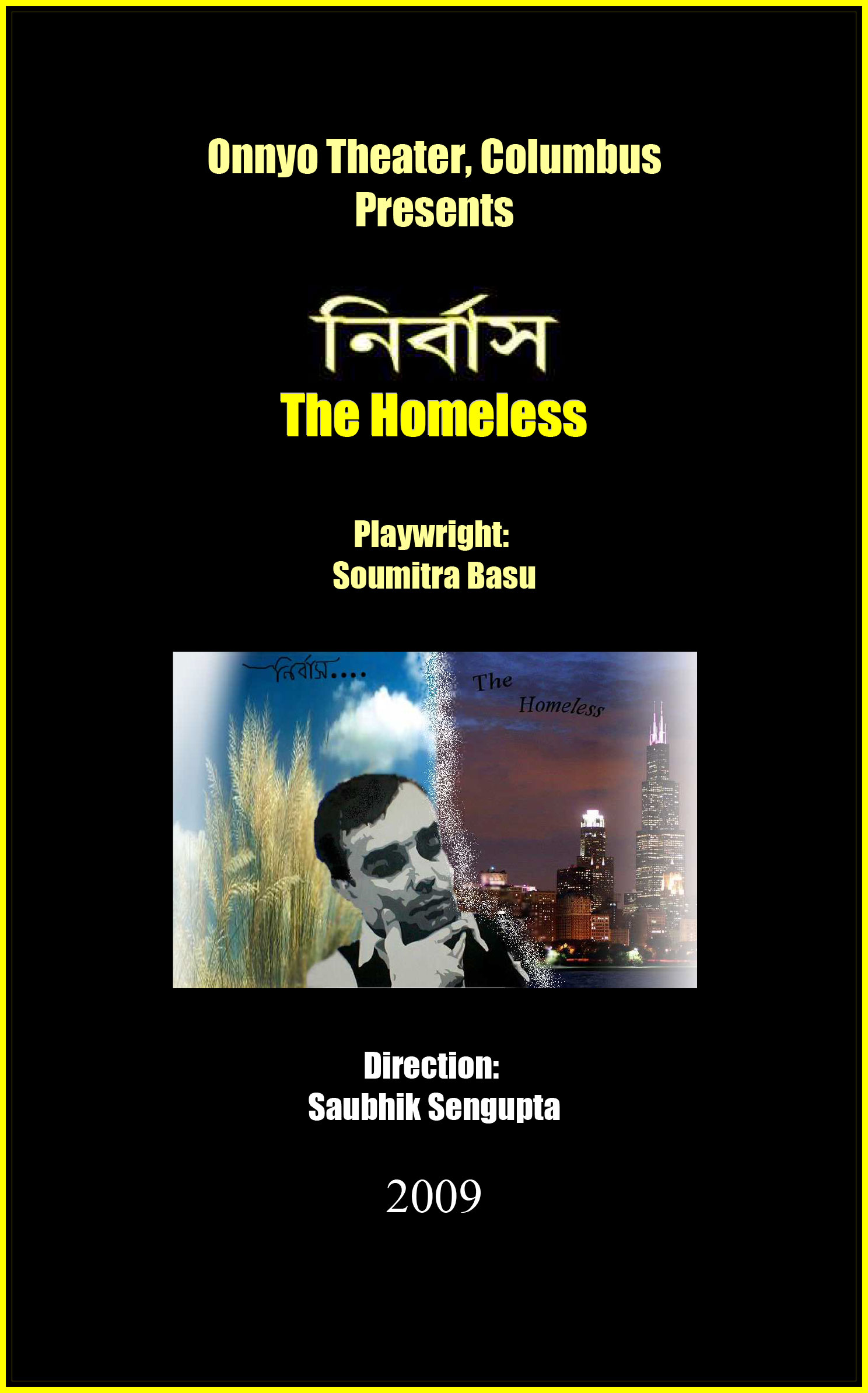The Homeless:
Synopsis
Our dreams keep us going. But what happens to those dreams, ideals, hopes and expectations when we are caught between the curious dichotomies of life? Soumitra Basu’s masterpiece Nirbaash (The Homeless) explores these questions when we see Aditya/Nutu visiting his village home in India after living in the U.S. for 26 years. Nutu readily responds to his sister’s (Trisha/Tunu) and brother’s (Putu) repeated requests to spend the autumnal festival of Durga Puja with them in the village home. The festival that is so meaningful to every person in Bengal, the nostalgia of the old village neighborhoods, the excitement of meeting his family and his childhood friend Binti— everything makes Nutu envision an ideal reunion with his roots. To surprise Binti, he reaches his village a day before he is expected. Binti is overwhelmed to see Nutu after all these years and she realizes that Nutu is unaware of the “real” reasons for his siblings to ask him to visit them. Gradually, Nutu learns that his trip to the village is not meant to be simply an innocent vacation. Reality is much uglier than that! His siblings are bent on selling off the old village home for want of money. Binti, who is not part of their family, but stays in the village home from her childhood, strongly opposes the idea of selling the house. For, in spite of all that she has gone through, she calls this village house her “home”. She is poor, shattered with her husband physically crippled and daughter dishonored by the brutal political group in the village. But her soul, her childhood, her entire past is ingrained in the village home. How could she quit her roots, the “home” that has become part of her consciousness? Does not that signify breaking herself from her “self”? She keeps resisting till the end with a dauntless spirit against Tunu, Putu, the political group of Nitya, even her own husband, Monu and daughter, Monty. Nutu’s ideal dreams of his “homeland” are shattered as one grim truth unravels another. With a heavy heart Nutu returns “home” in the U.S. to his Ameriacn wife, Maggie. Finally we are all left gasping for an answer to: what is a home and are we all homeless? What does it feel to be at home? Is it all in the mind (as Maggie puts it), or is it inseparable from our ancestral roots, heritage, bondage (as Nutu says), or is it a conflation of memories, connections and making of the “self” (as Binti perceives it)?





















